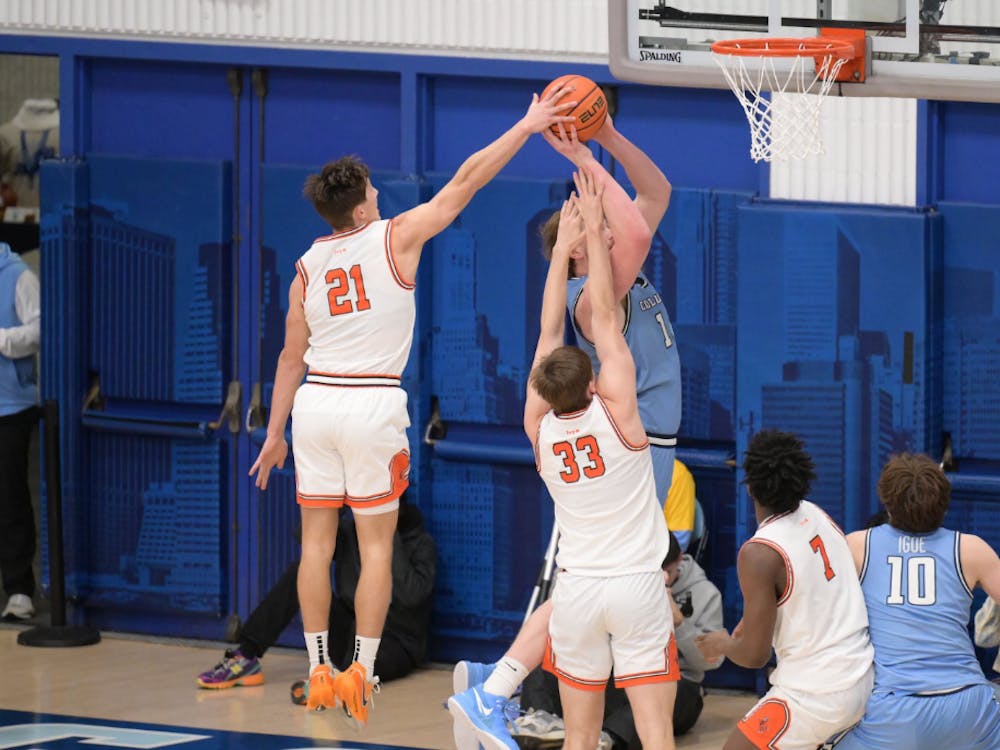When a friend of mine read about the football team's newly-installed Unity Council, he turned to me and asked, "Is Coach Hughes running a football team or an episode of 'Survivor?' "
After thinking about who I would vote off the starting lineup, I began to think about what the council and the other feel-good innovations brought to the Tigers by head coach Roger Hughes mean to members of the team when they step on the field. In other words, can a kinder, gentler football family actually win football games?
After Hughes' hiring, the program's open atmosphere and cordial nature were lauded by everyone (myself included). He would be the perfect remedy to the Tosches era. Intellectually and personally, he would be the model coach to guide this Princeton football team from the depths of the Ivy League standings.
Last Saturday, however, the season began in Easton, Pa., with a 24-17 loss to Lafayette. Hughes was hired to win more football games than Tosches did last year. Princeton defeated Lafayette last year.
Thanks to a shift in scheduling this season, Hughes didn't have to open his inaugural campaign against an Ivy League team — as the Tigers have every year since 1975 — so the honeymoon isn't over.
I'm not qualified to say if the Hughes approach is or is not the best way to run a football team. I've never played or coached football. So I asked a bunch of his players to speak freely and anonymously about what they thought. Does the football team itself buy into this family culture or think that — for lack of a better word — it's kind of cheesy?
"When I first heard about the council, I said, 'What? Are we going to hold hands and sing Kumbaya?' " one player said. "But it's great. To us, they're very welcome changes. Everyone's gained his respect. It's not phony. Knowing that he's listening to us [is great]."

"At first we thought maybe this was superficial — maybe it was cheesy," another player said. "But it's brought about a lot of changes that wouldn't have happened otherwise."
That's great off the field, but what about winning football games?
"Although we have the Unity Council and these slogans, on game day he's really serious — really focused," one player said.
But football coaches should be yelling and screaming and throwing clipboards all over the place. Shouldn't they?

"When he needs to be direct and authoritative, he is," one player said. "He works with the players like he's one of us. He's very aware of keeping the team as a whole. He's focused at unifying both sides of the ball. It makes us a more unified team and thus a happier team."
But is a happy team a winning team?
"I don't think there's any one right way to coach a team," one player said. "I don't think there's one formula to have a winning team. If it's done right . . ."
"He's got a really good relationship with all of us. It makes us play harder because he cares about us individually and as a team," another player said.
But is he supposed to be your friend or your coach?
"He wants to win so badly that it spreads to us," said another player. "He definitely can be authoritative when he needs to be. He's one of the most intense coaches I've had."
"In some ways, some of it is cheesy, but it's also genuine," a member of the team said. "Some of the things he says in practice come across as corny. But all that is overshadowed by the fact that he cares so much. He's human."
Hughes is a distinct coaching philosopher. He is more than the player's coach that has been so often reported. He's not a zen master a la Phil Jackson, either. He has instilled a new age gridiron doctrine that has penetrated the entire program.
How else could he get six-foot, four-inch, 240-pound defensive ends talking about "positivity" to a room full of jaded sportswriters?
Hughes calls the season a "growing process."
"Our whole thing is to forget about the score, forget about wins. Just get better every practice, get better every week, get better every game," Hughes said. "And if we do that, as I told them after the game, in nine weeks we're going to have a good football team."
He doesn't sound like Vince Lombardi, but his players still like what they hear. His sideline sermonizing is not falling on deaf ears. He may be preaching positivity. But with his team behind him, it seems he's preaching to the converted.
Whether that team can convert third downs into scoring drives, scoring drives into victories, and victories into championships will be seen in the next nine weeks.







